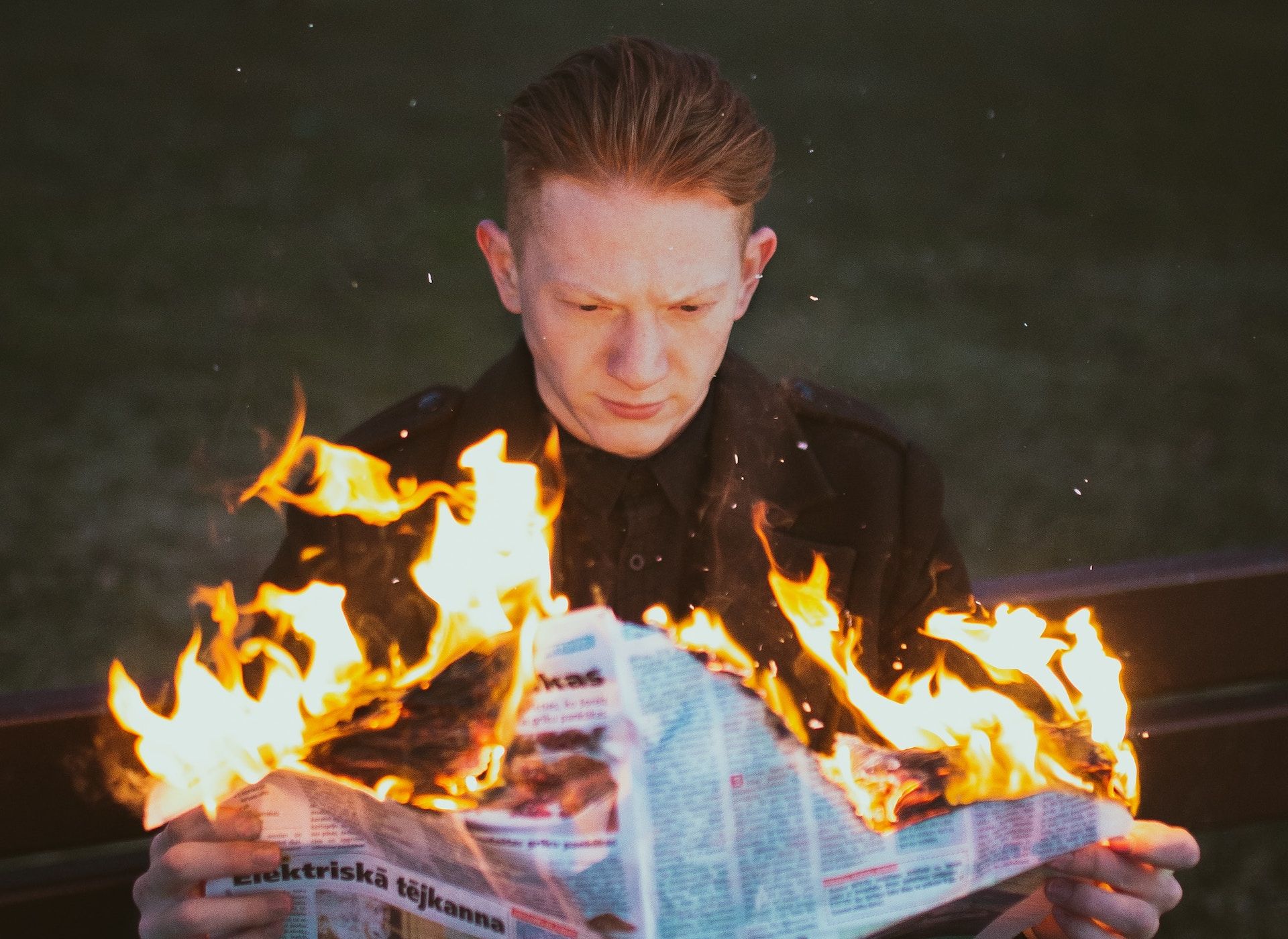
The Slow Death of Local Media
Has lack of trust in the media and dwindling local coverage snowballed into an apathetic voter base?
In Monday's letter from the editor, the Nashville Banner's co-founder, Steve Cavendish, informed his readers that going forward, the their election coverage would be “a little less frequent” due to intern Addison Wright’s return to college.
Over the last several months, the Banner staff has been reporting from the campaign trail through their Election Desk newsletter, which has provided extensive insight into the Metro General Election since its launch on June 1st. But, covering politics takes manpower.
The fact of the matter is, the slow erosion of local media has made it increasingly difficult for newspapers to provide the nuanced coverage needed to secure the general public’s trust. The results speak for themselves: while Nashville has more registered voters than ever before, few are willing to pull the lever in the voting booth, and even fewer are feeling well-informed.
HOW IT STARTED
Ever since we began covering of Metro Council, the Pamphleteer has reached out to various people to gain perspective on the local history, political dynamics, and logistics of how Metro Government operates. On background, we’ve had the privilege of speaking with former department directors, current and former council members, lobbyists, non-profit leaders, and involved citizens alike. When we sat down with former council member Emily Evans, who served the 23rd District from 2007 to 2015, the unsettling repercussions of the reduction in local media coverage arose. “I have, hanging on my office wall, some articles that were printed back just in 2009," she reminisced. "These are front page articles written… with pictures and quotes. Even then, just keeping up with [the] changing faces and understanding the political dynamic was difficult. Now…it's just impossible.”
HOW IT’S GOING
Evans continued with a welcome history lesson to hone in on the issue: “In 1963, you had a reporter on every floor…. So even though there were 40 members, you had time to get to know them and understand them.” Over the last fifteen years, newsrooms have been gutted. The dwindling number of local journalists pounding the pavement are spread thin, lacking time, expertise, and resources.
In turn, holding local office has become less appealing. Council members have been forced to pivot. Not only are they vying for local support, they’re also struggling to maintain relevance and name recognition for reelection. We’ve seen this take form in the rise of council members circulating their own blogs and newsletters as though they’re news articles. This direct access to local politicians isn’t a bad thing, but it contributes to an imbalanced perspective. And of course, alongside these inevitably biased blurbs are narratives perpetuated by special interest groups and lobbyists.
Support The Pamphleteer's mission by becoming a member (More Info)
IS SOCIAL MEDIA THE NEW MEDIA?
Last week, we published an article regarding the public comment period during August 1st’s Metro Council meeting: 300 people signed up to air their concerns about the proposed sound ordinance. In response, Councilmember Erin Evans (not to be confused with the previously mentioned Emily Evans) commented on our failure to mention the ongoing conversations between the community and the bill's main sponsor, Councilmember Syracuse.
While there’s absolutely no issue with Evans using her platform to do her duty and inform the public as a representative, it’s no surprise that support for her remark came from a fellow council member, a lobbyist, and a local activist. When politicians, lobbyists, and special interests groups drive the local conversation-- including news coverage-- the general public is left to fill the gaps on its own.
WHERE DOES IT GO FROM HERE?
Now, all that is not a soliloquy to gin up sympathy for the burdensome plight of the lowly, local journo. It’s also not an attack on the tireless efforts of part-time council members, the vested interests of private investors, or the involvement of plugged-in civilians. Our intention was to lay a foundation to explain the reality of the modern media landscape that contributes to the broken interaction between local municipalities and their constituents.
Our latest election was plagued with indecisiveness, apathy, low numbers, last minute turnout, and repetitive campaign platforms– just like the general elections in 2019, 2015, and so on. It leaves constituents scrambling to answer basic questions: Who are these people and why do we always have the same problems?
